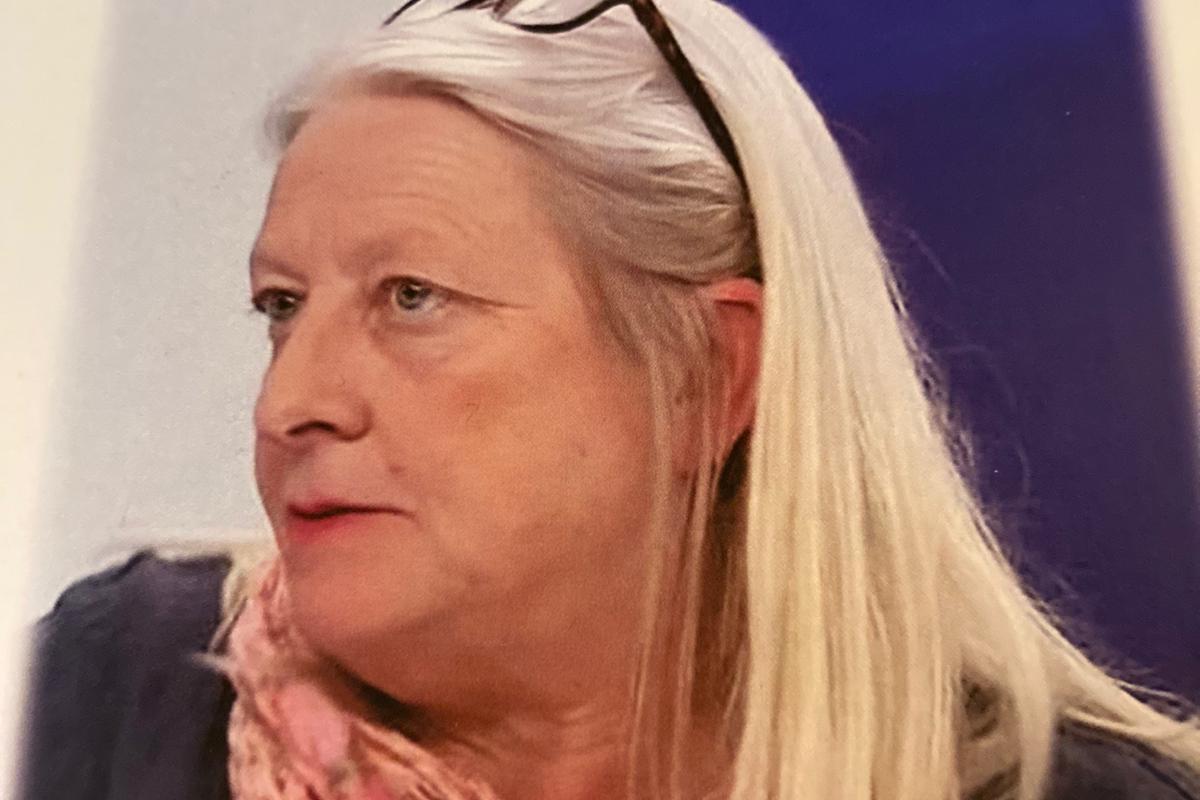The story of Alison Balharry’s life requires many narrators. The words below are my contribution.
I only knew Alison from 2013, but she peppered the subsequent decade with memories from her life and the stories of her family.
She would proudly explain that she was a descendent of Perthshire estate workers, who in her view had lived a life of serfdom. She saw her own journey and opportunities in that context, remembering where she came from.
For her secondary education she attended the private High School of Dundee and excelled academically. She would tell me about her dad Angus’ football career. She would share the story of her uncle, the naturalist Dick Balharry. She seemed to personally know and closely track the lives of anyone from Dundee’s housing estates, each story an example of success from adversity. Her own career started as a journalist, producer, and broadcaster at Radio Tay. She found further success producing current affairs radio programmes at BBC Scotland and then the BBC World Service.
I knew more of recent decades in her life – particularly her time in Qatar working as a journalist for Al Jazeera and in London for the BBC’s World At One radio programme. Reporting the injustice of the British and American war on Iraq was a particularly painful and life altering experience for Alison.
She was at the forefront of bringing the pictures of the children of Fallujah to the world. Alison can be seen at various points of the documentary film ‘Control Room’, which explores war propaganda and the media at the time of the invasion. In one scene a gaggle of Western, male journalists laugh and chunter in unison while watching the spectacle of troops entering Baghdad. The camera cuts to Alison, sombre faced with her eyes closed. (link) She would recount her horror at the vaingloriousness with which many Western journalists took their duty as first witnesses to killing and massacre.
Her affinity with Arab culture grew. Politically, this was demonstrated in part by her deep understanding of the occupation of Palestine. She visited Palestine and spoke of the difficulties of traversing the border walls and gates preventing movement to Gaza and the West Bank. She was a firm supporter and loyal donor to Medical Aid for Palestine. On a personal level, she would help friends and strangers alike who sought refuge in the UK from conflict.
That timeline is but a sample of Alison’s professional story. She was fiercely independent – as any serious journalist should be – and had a keen eye for exposing hypocrisy and mediocrity. No one was off limits and she never held back.
Our first meeting was part introduction, part interrogation – with 21 year old me very much on the back foot. She put her often anarchistic beliefs into practice as an irrepressible force within the Scottish independence campaign.
When she quit her first role, she inspired an impromptu walk-out from myself and others in her support. She was close to tears on the street outside as she saw the impact her character and convictions had had on us in a short period of time.
She joined the Yes Scotland national campaign media desk, dealing with broadcast media. She cared deeply for the cause of Scottish independence, and agreed to work for the campaign without any pay from them and without signing any non-disclosure agreement.
Many political activists and journalists will know Alison from that period. She was always glued to the news cycle. It felt like she had her ‘sources’ everywhere and for everything. Well past the referendum, ‘placing’ stories remained a mission of conviction. And she had many strong convictions. When we met or spoke over the phone, she would rampage through the inequities of the housing, care, and justice systems in a way that was always grounded in people she saw and thought about.
There were two sides to her personal outlook. Her hatred of what she judged to be hypocrisy or mediocrity meant she would often clash fiercely with those around her. Few escaped unscathed. But this anger was often driven by a deep hope for a better world – which was also expressed through thousands of acts of mentorship and support, particularly for those younger than herself.
Both the combative and compassionate aspects of her character were demonstrated during one late evening invitation to Govan police station. Rather than thinking of herself, she was appalled by how those around her in the station were being treated and what this said about Scotland as a whole.
In later years she was scathing of her country and the mediocrity of its political class. She chastised her own generation for a failure to live up to their own professed idealism, something she was never willing to relinquish. She stayed in Scotland out of a duty to care for her mum Edith, who passed away in April of this year in Broughty Ferry.
In her final years she made many new friends. Some of that spirit is captured in a dedication by Andrew McColl.
As with any friend, there are other parts of Alison’s life that are best known by her close family and those closest to her throughout her life. Many of those memories are omitted here, but were shared and celebrated at Alison’s funeral in Dundee among her old school friends and family.
I thank a number of Alison’s friends for their review of this memorial post, all of whom were enriched by Alison’s kindness and solidarity in life. We will carry her with us.
30 December 2023.

Well said. I knew Alison from her training days at Dundee College in the 1990s. I wish I had known about her funeral.
LikeLike